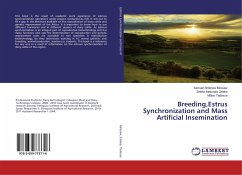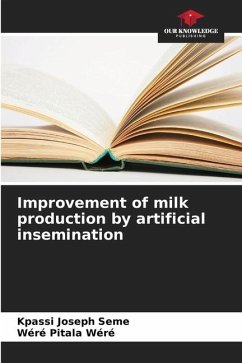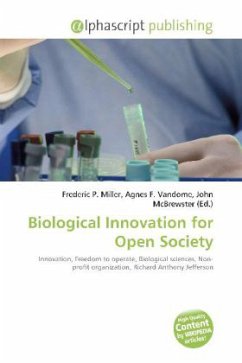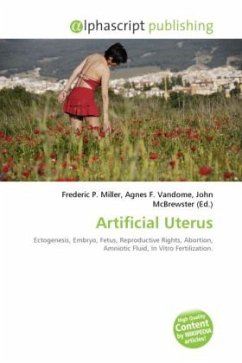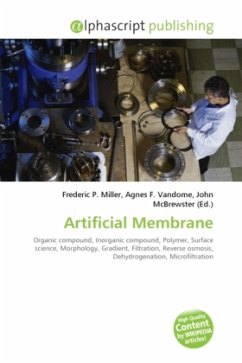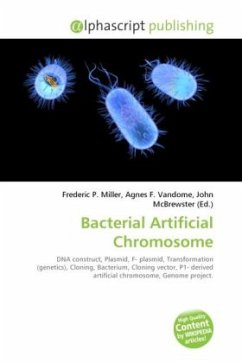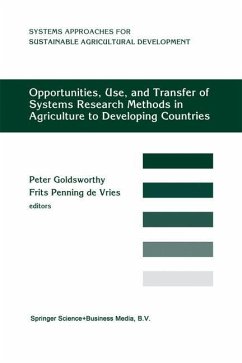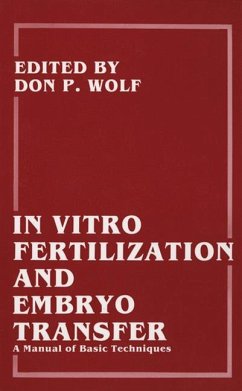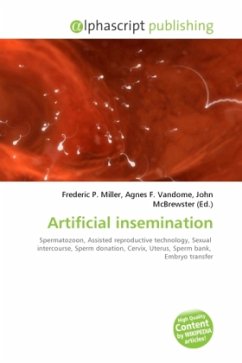
Artificial insemination
Versandkostenfrei!
Versandfertig in 6-10 Tagen
19,99 €
inkl. MwSt.

PAYBACK Punkte
10 °P sammeln!
Artificial insemination (AI) is the process by which sperm is placed into the reproductive tract of a female for the purpose of impregnating the female by using means other than sexual intercourse. In humans, it is used as assisted reproductive technology, primarily to treat infertility using sperm from the woman's partner, or sperm from a sperm donor (donor sperm) where the male partner produces no sperm. It is also increasingly used to enable women without a male partner (i.e., single women and lesbians) to produce children by using donor sperm. In cases where donor sperm is used the woman i...
Artificial insemination (AI) is the process by which sperm is placed into the reproductive tract of a female for the purpose of impregnating the female by using means other than sexual intercourse. In humans, it is used as assisted reproductive technology, primarily to treat infertility using sperm from the woman's partner, or sperm from a sperm donor (donor sperm) where the male partner produces no sperm. It is also increasingly used to enable women without a male partner (i.e., single women and lesbians) to produce children by using donor sperm. In cases where donor sperm is used the woman is the gestational and genetic mother of the child produced, and the sperm donor is the genetic or biological father of the child. Specifically, freshly ejaculated sperm, or sperm which has been frozen and thawed, is placed in the cervix (intracervical insemination) (ICI)) or, after washing, into the female's uterus (intrauterine insemination) (IUI) by artificial means. Modern techniques for human artificial insemination were first developed for the dairy cattle industry to allow many cows to be impregnated with the sperm of a bull with traits for improved milk production.



